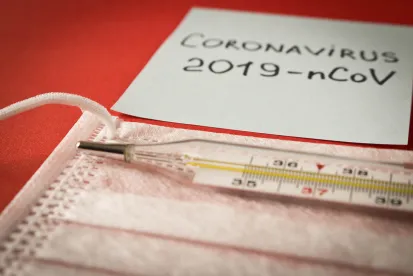The unprecedented havoc wreaked on world economies by COVID-19 has put all manner of entities under financial stress. If some of those entities are your counterparties to swaps under either the 1992 ISDA Master Agreement or the 2002 ISDA Master Agreement (each, an "ISDA Master"), you might want to consider taking the following precautionary steps:
-
Compile a list of the counterparties that are potentially suffering the greatest stress as a result of the COVID-19 pandemic and business shutdowns. Make sure you identify the Specified Entities and Credit Support Providers for each counterparty on the list.1
-
Make sure your documentation file for each counterparty is complete, with particular emphasis on copies of all confirmations and ISDA Master amendments.
-
Identify all custom Events of Default and Additional Termination Events you have added to your ISDA Master, as well as all custom amendments you have made to standard default and termination provisions, such as amending a 1992 ISDA Master to reduce the grace period for payment defaults to match that of the 2002 ISDA Master.
-
If you are using a 2002 ISDA Master, you will have a standard force majeure provision in your agreement that may be relevant. If you are using a 1992 ISDA Master, check whether a custom force majeure clause has been added, such as the "Impossibility" provisions from the User's Guide to the 1992 ISDA Master.
-
Make sure you are regularly receiving the information necessary to monitor compliance with custom Events of Default and Additional Termination Events. There may be relevant information delivery requirements in Part 3 of your ISDA Schedule.
-
Check whether Automatic Early Termination (AET) applies to your ISDA Master. AET, which provides that all Transactions under an ISDA Master will terminate immediately upon the occurrence of an insolvency Event of Default, is often found in ISDA Masters with parties incorporated in the following countries: Brazil, Denmark, Germany, Israel, Japan, Netherlands, Netherlands Antilles and Switzerland.
-
Create a calendar of payment and delivery dates with estimates of the amount/size of payments and deliveries coming due in the next six months.
-
Create a rapid response team with members from credit, operations, legal and business management to address defaults as they arise.
-
Assuming margin is required on a daily basis, make sure that collateral transfers from the counterparty are carefully monitored when you have a net in-the-money position and collateral returns are carefully monitored when you are out-of-the-money. Collateral management should send an alert to the rapid response team for any missed collateral transfer.
If your counterparty actually begins to default on obligations or breach representations and covenants or becomes subject to Additional Termination Events, then the following additional steps will be necessary:
-
Carefully verify any alleged default. A Non-defaulting Party may not take action to terminate Transactions under an ISDA Master unless it has first determined that there is a reasonable basis for believing that an Event of Default has occurred with respect to a relevant party.
-
Understand the terms of your ISDA Master for determining the occurrence of an Event of Default or Additional Termination Event and the applicable notice requirements and cure periods. See Exhibits A and B for a charts showing standard ISDA Master requirements.
-
If an Event of Default has occurred and is continuing and AET does not apply, the Non-defaulting Party has the right, but not the obligation, to designate an Early Termination Date on which all Transactions will terminate. To do this, the Non-defaulting Party must deliver a notice to the Defaulting Party which:
-
specifies the relevant Event of Default, and
-
designates the date the Non-defaulting Party chooses as the Early Termination Date, which may be the date when the Non-defaulting Party's notice takes effect or any day up to the 20th day after such date.
-
-
If the Non-defaulting Party is a Pledgor of collateral, the Notice should also include a demand for return of Posted Collateral under the relevant Credit Support Annex. (Termination following the occurrence of a Termination Event requires a similar designation of an Early Termination Date, but only for Affected Transactions.)
-
A notice of early termination must be sent to the address specified in the ISDA Master (with any copies specified in the ISDA Master, but copies should also be sent to any other addresses that are likely to increase the possibility of the Defaulting Party receiving actual notice of termination). Unless the Non-defaulting Party and the Defaulting Party are located in the same city, use of an overnight courier service will delay the effective date of the notice by one Local Business Day. Unless the parties have agreed otherwise, notices of default and termination under an ISDA Master may not be given by email or electronic messaging. ISDA recently distributed a memo to its members discussing the possible alternatives if it becomes impossible to deliver a notice of default or termination due to office closures and other similar circumstances related to the pandemic.
-
A Non-defaulting Party may choose not to terminate the Transaction under an ISDA Master following the occurrence of an Event of Default, and instead may rely on Section 2(a)(iii) of the ISDA Master to suspend its own performance, particularly if termination would cause the Non-defaulting Party to owe a payment to the Defaulting Party. Such a course of action might not succeed against an insolvent US counterparty due to a ruling against Metavante Corporation in the Lehman bankruptcy; however, the parties settled before the appeal of that ruling was decided.2 Your ability to follow this course may also be limited if your ISDA Master has been amended to establish a time limit for acting on Events of Default. If a Non-defaulting Party decides not to terminate, it should send the Defaulting Party a notice that:
-
suspends further performance by the Non-defaulting Party while the Event of Default is continuing pursuant to Section 2(a)(iii) of any ISDA Master, and
-
reserves the right to terminate any time in the future while the Event of Default is still continuing.
-
-
Once a counterparty has defaulted, written communications from the Non-defaulting Party to the Defaulting Party about default should be carefully drafted. In most cases, such communications should contain an explicit notice confirming that the communication is being made in the context of settlement discussions and is not admissible as evidence in any subsequent litigation concerning the default, such as: "Privileged and Confidential Settlement Communication. For settlement purposes only. Inadmissible for any purpose under Federal Rule of Evidence 408 and similar state laws." If extensive work-out discussions are necessary, you may want to put in place a pre-negotiation agreement.
-
A Non-defaulting Party that has chosen to terminate all Transactions must comply precisely with all of the relevant obligations under Section 6(e) of the ISDA Master regarding the methodology for determining the amount owed by one party to the other party. Failure to do so could lead to the Defaulting Party being able to bring a successful challenge to the Non-defaulting Party's calculations.









 />i
/>i

